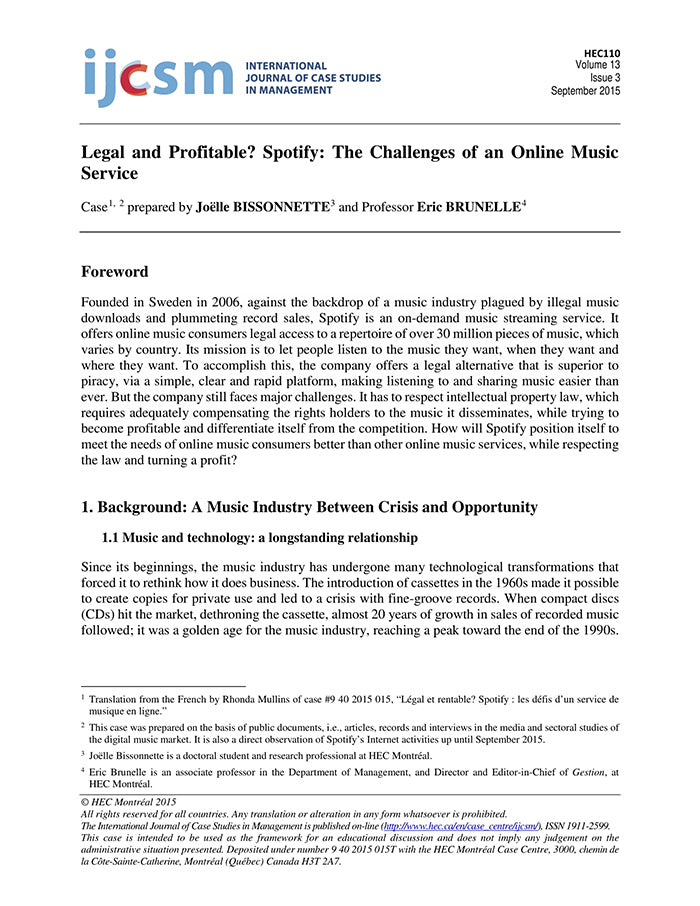Legal and Profitable? Spotify: The Challenges of an Online Music Service
受取状況を読み込めませんでした
Spotify is an on-demand music streaming service founded in Sweden in 2006, in a music industry in crisis. It offers online music consumers legal access to a repertoire of over 30 million pieces of music, which varies by country. Its mission is to let people listen to the music they want, when they want and where they want. To accomplish this, the company offers a legal alternative that is superior to piracy, via a simple, clear and rapid platform, making listening to and sharing music easier than ever. Its service falls within the freemium model: users can access it free in exchange for being exposed to ads a few minutes every hour or pay a small monthly fee to access it without ads, without interruptions and with a certain number of benefits in terms of the quality and accessibility of music. Spotify has seen meteoric growth since it was founded: it has a presence in 58 countries and has 75 million users, 20 million of whom are paying subscribers. Despite this, the company has not yet turned a profit. Plus the compensation it pays to rights holders for the use of their music has been criticized as being insufficient. However, this problem is not exclusive to Spotify; it affects most businesses that try to monetize music.
【書誌情報】
ページ数:23ページ
サイズ:A4
商品番号:HBSP-HEC110
発行日:2015/9/14
登録日:2015/10/22

